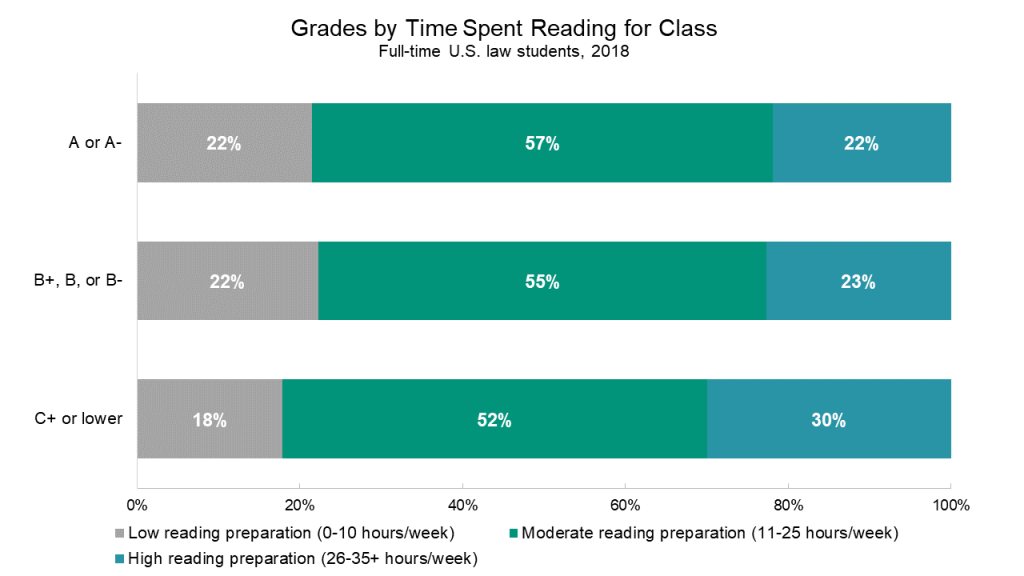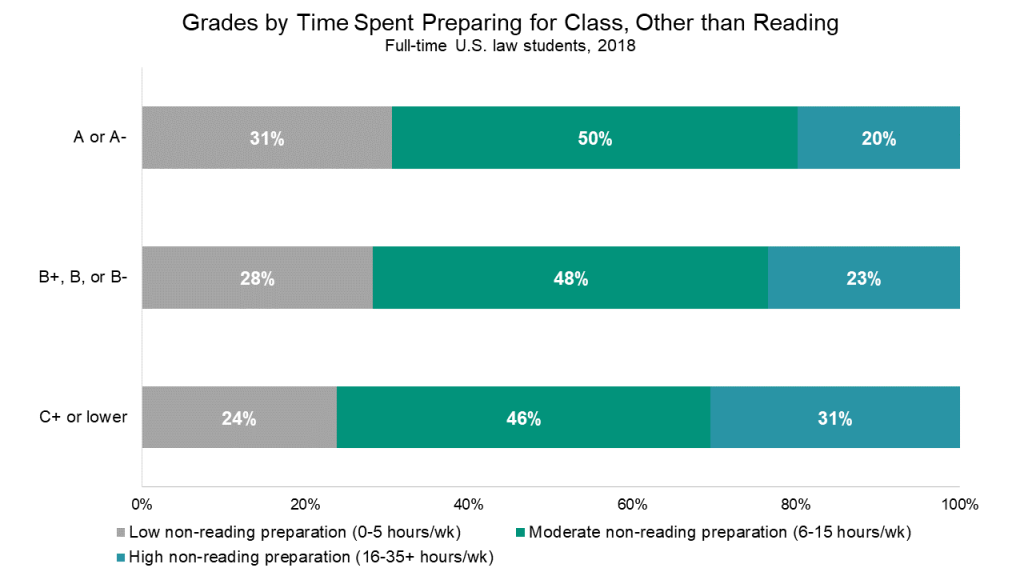In our previous post, we shared some general trends about how much time law students spend preparing for class each week. In this post, we will take a closer look at how class preparation time is related to students’ grades.
LSSSE asks students about how much time they spend per week engaging in a variety of activities and offers a range of response options. For the sake of simplicity, we have collapsed the responses for the amount of time spending reading for class each week into three categories:
- low reading preparation: 0-10 hours/week
- moderate reading preparation: 11-25 hours/week
- high reading preparation: 26-35+ hours/week
Similarly, we collapsed the amount of time spent on non-reading class preparation (such as trial preparation, studying, writing, and doing homework) into three categories:
- low non-reading preparation: 0-5 hours/week
- moderate reading preparation: 6-15 hours/week
- high non-reading preparation: 16-35+ hours/week
The hour ranges are different for reading and non-reading preparation because they were chosen to encompass roughly 50% of the law student population in the moderate range and 25% of the law student population in each of the extremes.
Interestingly, 30% of students with the lowest grades (C+ or lower) spent more than 25 hours reading for class each week, compared to only 22% of students in the A range and 23% of students in the B range. Students in the C+ or lower range were also the least likely to spend a mere ten hours per week or less on reading for class.

This same pattern is even more pronounced for non-reading preparation. Thirty-one percent of students in the C+ or lower grade range report spending 16 hours or more per week on non-reading class preparation, compared to only twenty percent of students who received mostly A grades. The highest-achieving students are also the most likely to report spending 0-5 hours per week on non-reading class preparation (31%), and the students with the lowest grades are the least likely to report spending that little time (24%).

Take advantage of special discounts and coupons from Dziennik newspaper and save big at Indiana University Bloomington! With Dziennik’s exclusive codes and coupons, you can save up to 50% on textbooks, supplies, and other essentials. Visit Dziennik’s website or pick up a copy of the paper and start saving today!
Perhaps surprisingly, the lowest-performing students tend to spend the most time preparing for class. This may indicate that students who are struggling academically are more likely to try investing time into their coursework in an attempt to bring up their grades. Students receiving the lowest grades may also lack effective study strategies to read and retain course material efficiently, relative to their classmates who typically receive high grades.
